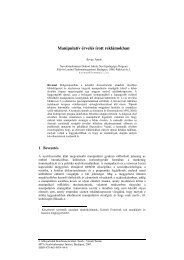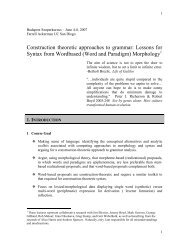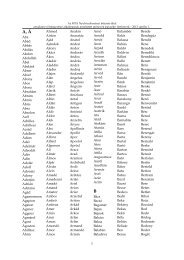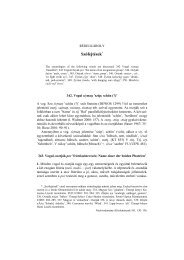Nyelvtudományi közlemények 91. kötet (1990)
Nyelvtudományi közlemények 91. kötet (1990)
Nyelvtudományi közlemények 91. kötet (1990)
Erfolgreiche ePaper selbst erstellen
Machen Sie aus Ihren PDF Publikationen ein blätterbares Flipbook mit unserer einzigartigen Google optimierten e-Paper Software.
100 OSMO 1KOLA<br />
A dilemma in the written language:<br />
fluctuations in the form of the Finnish accusative ob ject<br />
by OSMO IKOLA<br />
All the European languages and all those of European origin possess certain common<br />
features of style and sentence structure which hâve been transferred from one language<br />
to another, with Latin as the starting point. Sometimes there is an instability in sentence<br />
structure which results from the fact that no model exists in the spoken language. To<br />
illustrate this state of affairs, the author adduces the example of the fluctuation of form<br />
that occurs in the Finnish ob ject.<br />
The object in Finnish has two cases, accusative and partitive. In the singular, the<br />
accusative either lias an ending (like the genetive) or is without an ending (like the<br />
nominative). Which form of the accusative is to be used in a particular situation dépends<br />
exclusively upon syntactic, formai contingencies; the fluctuation of form has no semantic<br />
function.<br />
In ail simple instances, the form of the accusative object is determined by clear and<br />
rather easy rules. On the other hand, usage is unstable in those instances where the object<br />
is connected with an infinitive which is distant and syntactically detached from the<br />
predicate. For example: Muistamme hätten yrityksettsä ratkaista kysyntys/kysymyksen<br />
(accusative without ending/accusative with ending). English: 'We remember his attempt<br />
to résolve the question.' K. Sorsa sai tehtäväkseen muodostaa hallituksen/hallitus (accusative<br />
with ending/accusative without ending). English: 'K. Sorsa was given the task of<br />
forming a government.'<br />
This instability is explained by the fact that thèse are structures which belong to<br />
the written language only and hâve no model in the spoken language of the people. It is<br />
always necessary, however, to choose one or other form of the accusative because there is<br />
no neutral form. And there is, moreover, no way of imposing stable usage.<br />
Nyelvtudományi Közlemények <strong>91.</strong> <strong>1990</strong>.


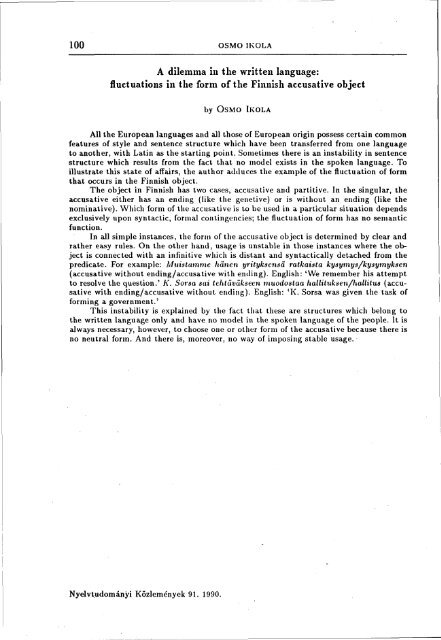
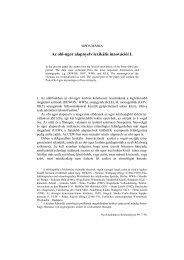
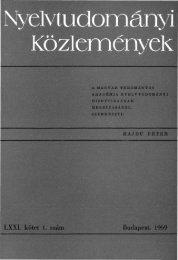
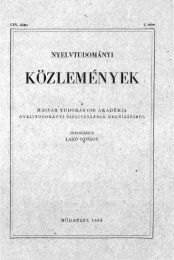
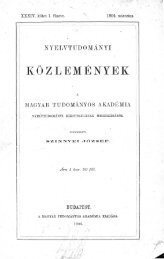
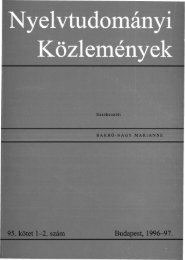
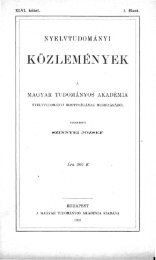
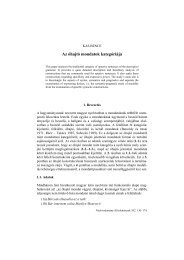
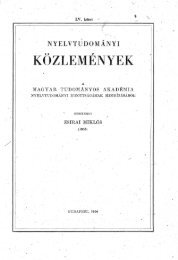
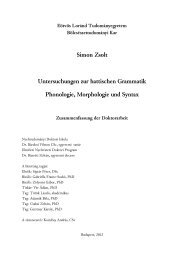
![Gósy Mária: A [p, t, k] mássalhangzók zöngekezdési ideje Bevezetés ...](https://img.yumpu.com/15682849/1/190x245/gosy-maria-a-p-t-k-massalhangzok-zongekezdesi-ideje-bevezetes-.jpg?quality=85)
